33% of Americans say Saudi Arabia is friendly, while 23% say it's unfriendly
There is little doubt among the American public that the government of Saudi Arabia was responsible for the killing of Saudi dissident and journalist Jamal Khashoggi, but Republicans and Democrats continue to be split on what to do about it – and even on how to regard his home country.
The recent G-20 meeting brought together countries that Americans in the latest Economist/YouGov Poll regard as mostly friendly towards the United States. Only two G-20 countries – Russia and China – are clearly viewed as unfriendly. Those with opinions are divided when it comes to Turkey. Nearly a quarter describe Saudi Arabia as unfriendly, but even more think of it as a friendly country.
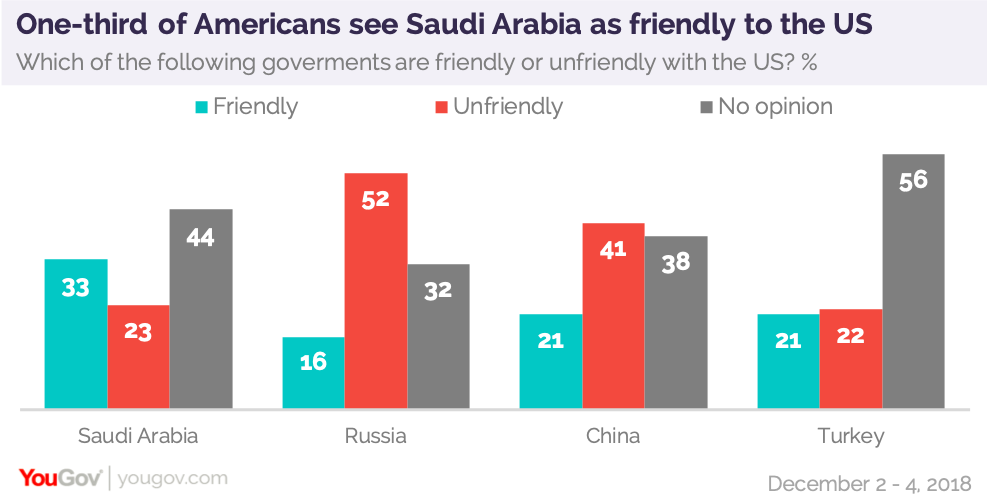
As for the other G-20 countries, all those in Europe, North and South America, and others in Asia (Japan, India, Indonesia and South Korea) are thought of as friendly countries. So is South Africa, the only African country in the group, as well as Australia.
On most countries, including Russia, China and Turkey, there is little difference between Republicans and Democrats. But while Democrats aren’t sure about Saudi Arabia, Republicans see it as a friend.
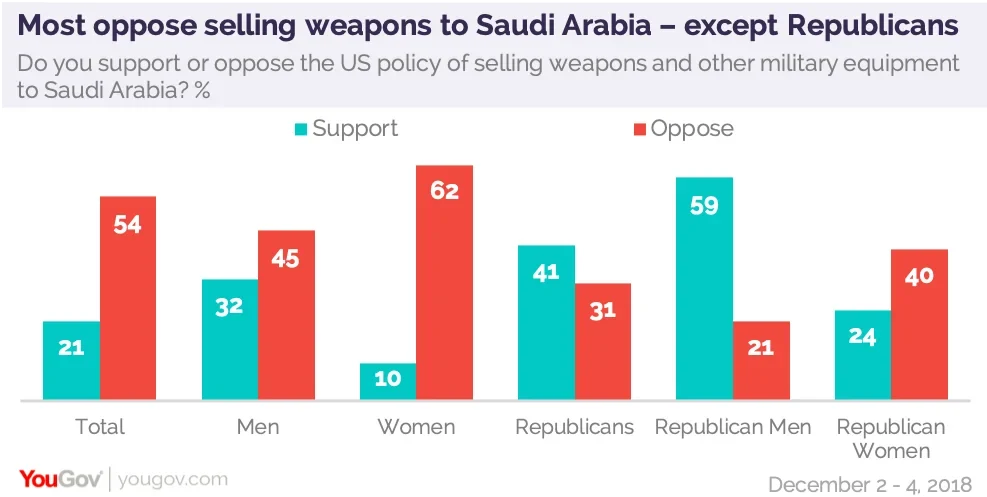
41% of Republicans say they would support selling weapons to the Saudis, but 31% oppose that. Most of the GOP opposition is from Republicans women, who oppose US arms sales to the Saudis by about two to one (women overall also oppose selling weapons). There is also a gender gap when it comes to the US providing military equipment and logistical help to the Saudis in support of their intervention in the civil war in Yemen.
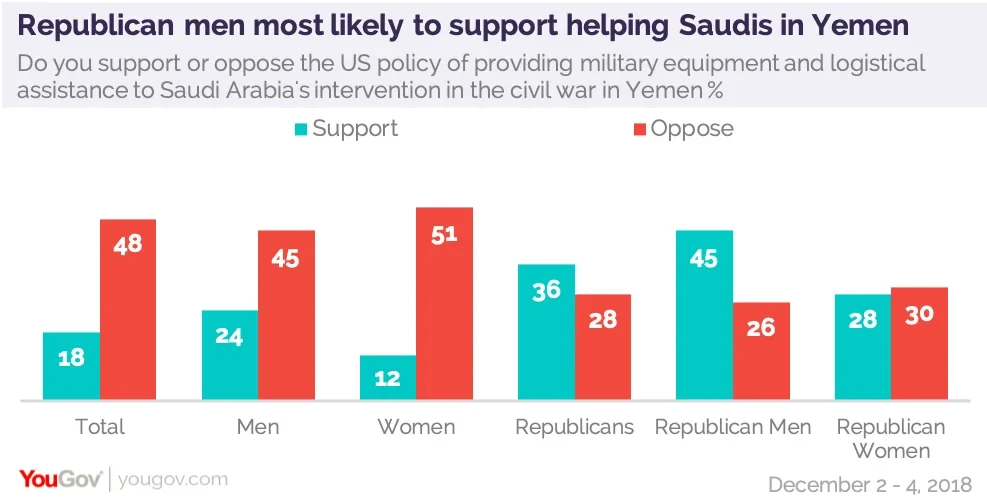
Those are specific policies that the United States has been pursuing with Saudi Arabia long before the killing of Khashoggi. His death, for which Americans blame the Saudi government 61% to 5%, may even bring about a Senate resolution finding Saudi Arabia’s Crown Prince Mohammed bin Salman, complicit (a small bipartisan group of Senators met with Central Intelligence Agency Director Gina Haspel on Tuesday). Most Americans support sanctions; Republicans are divided. Men and women are equally likely to support sanctions.
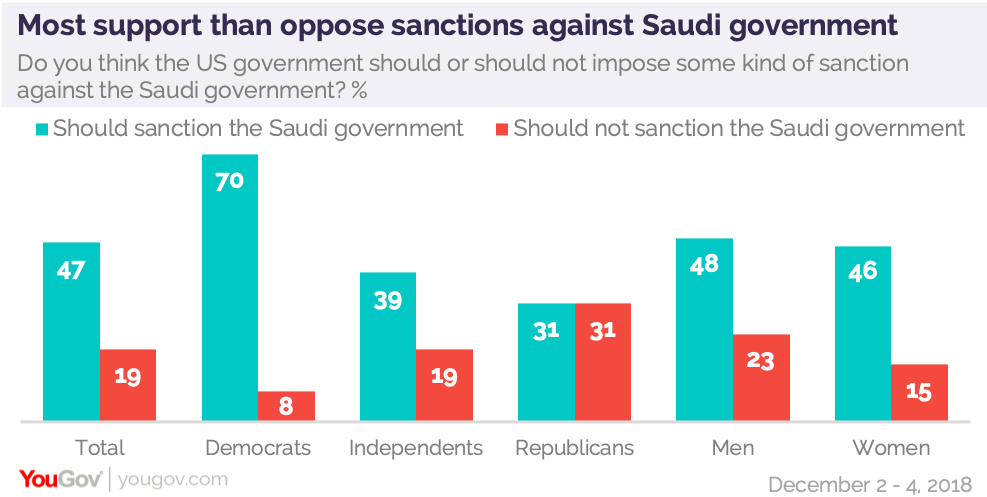
Americans would like the government to consider human rights as a policy consideration in its dealings with other countries, but there is a divide on just how important it should be in US dealings with other countries. A majority of Democrats would prioritize human rights, while most Republicans would place it behind economic and security issues, but still consider it. Hardly anyone would ignore it.
The parties feel differently, too, when it comes to preferring democratically-elected governments overseas whatever their attitude to the United States, to dictators who are steady allies. By more than two to one, Democrats favor the former, while by the same margin, Republicans support the latter.
There is a sense among many that America’s making be losing respect in the world. A majority say the US is less respected today than it has been in the past, similar to their reactions at the start of this year. Nearly a third say it will be less respected than it is today in 2020 – with a majority of those who see it as less respected today than in the past saying that respect will continue to decline.
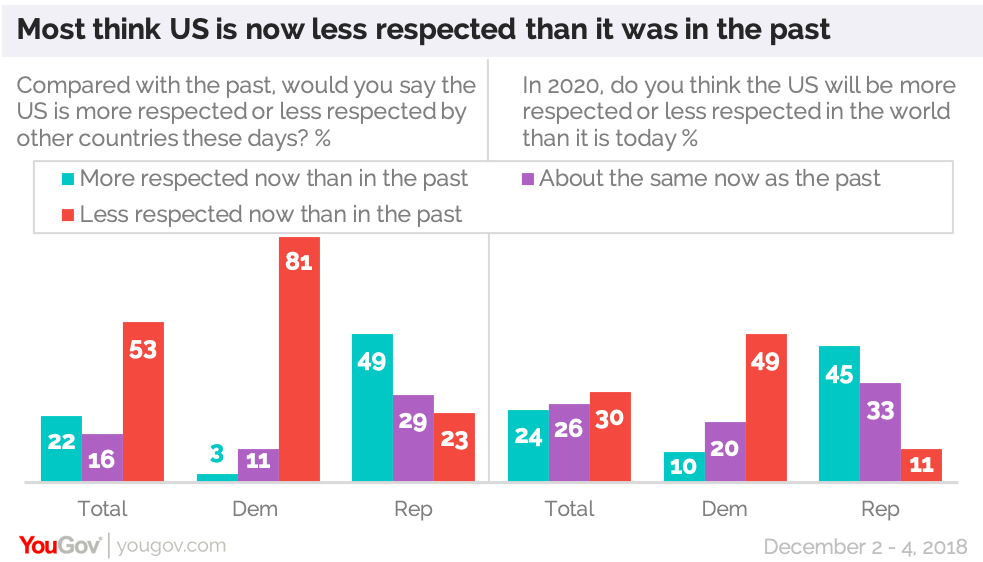
Republicans and Democrats differ dramatically on these questions. Half of Republicans say the US is more respected today than it was in the past – though nearly a quarter of Republicans see less respect for this country abroad. Republicans are also hopeful about the US becoming even more respected in the future.
See full toplines and tables results
Image: Getty








